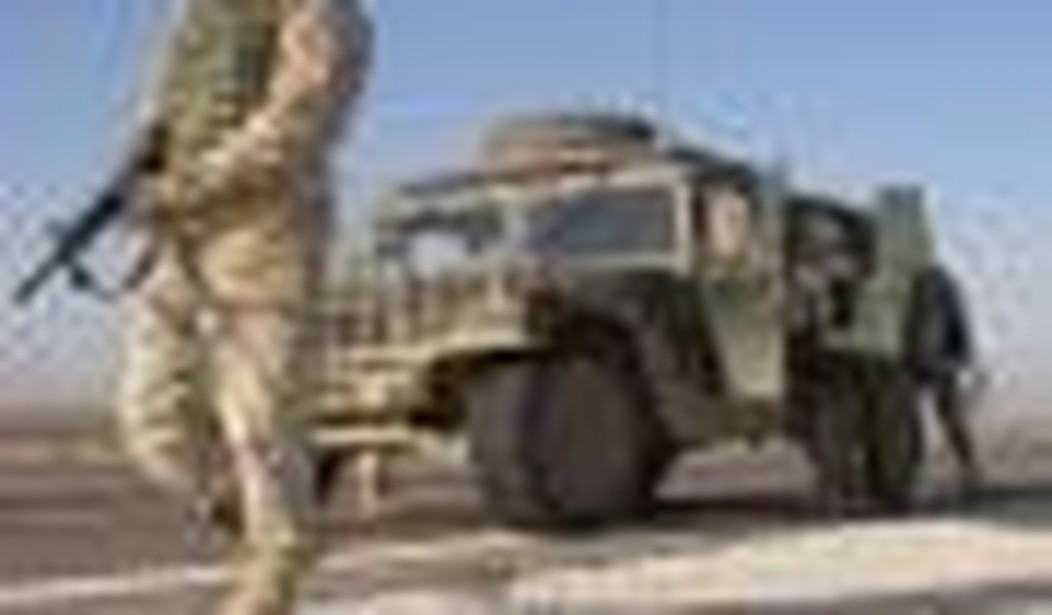In Iraq, the legacies of the Bush and Obama administrations have become intertwined. Should Iraq spiral into chaos and the U.S. not intervene to save it, the war in Iraq will go down as a massive blunder in the history books, both for the man who started it and the man who was elected to responsibly end it. As U.S. forces complete the withdrawal from Iraq’s cities, the enemies of the West and of Iraq’s democracy are gearing up for the next round in the battle of the Middle East.
The decline in the number of foreign fighters entering Iraq via Syria has been widely reported, but the fact that such transit remains available to them indicates this is due to a changed strategy in pursuit of the same objective, not a sudden change of heart. The Assad regime of Syria is still trying to destabilize Iraq, but at the same time modifies its behavior to maximize the benefits from the U.S. desire to develop a better relationship. While the U.S. has decided to send an ambassador to Syria, the Assad regime has reactivated the pipeline used by terrorists, including al-Qaeda in Iraq, to deadly effect. Although the flow isn’t back to its height of 100 entering Iraq per month, the number has increased to 20 from the fewer than a dozen that were entering recently.
Ahead of the completion of the U.S. withdrawal from Iraqi cities, there has been an expected increase in attacks. This indicates that the fluctuations in the number transiting Syria may be a reflection of where al-Qaeda and like-minded terrorists have decided to invest their resources, rather than flip-flops on the part of Syria. Faced with defeat following the surge, al-Qaeda began focusing on Afghanistan, Pakistan, Yemen, and Somalia. Now, with U.S. troops leaving, they see an opportunity to reassert themselves in Iraq and possibly gain back some of the tremendous amount of prestige and morale that has been lost since 2007.
This is probably a futile effort on the part of al-Qaeda. The Iraqi Security Forces have proven resilient and have not dissolved in the face of growing casualties and responsibilities. The Iraqis are eager to take their country back and are confident of their abilities, as demonstrated by the elected government’s decisive act of sovereignty when negotiating the Status of Forces Agreement with the Bush administration, which the Obama administration is now implementing. The threat of a civil war has subsided, as relatively few sectarian attacks are occurring and the ones that do take place fail to spark a cycle of violence. The Iraqi government is even offering about $1,800 for Sunni and Shiite couples that get married, encouraging the intermarriages between the sects that often occurred in the past but were never brought up amid the clamoring that a civil war was inevitable or had erupted.
Even if al-Qaeda somehow knows its chances of success in Iraq are minimal, they are required to try to create the impression that U.S. forces are leaving because of them. A major reason behind al-Qaeda’s renewed activity in Iraq is to capitalize on any fear Iraqis might have as the U.S. forces leave and to have U.S. forces leave with bombs going off around them, in a desperate attempt to make it look like a retreat rather than a success-enabled shift in strategy. If it appears to the Muslim world that al-Qaeda has lost, then the game is close to being over. Ayman al-Zawahiri’s former mentor, Dr. al-Fadl, has turned into a harsh critic of al-Qaeda and says what is on the minds of many Muslims: if al-Qaeda is acting on the will of Allah, then how come it’s been defeated? The costs of losing in Iraq are far too high for al-Qaeda and so we must expect desperate measures in the coming months. If al-Qaeda cannot point to a victory elsewhere in spite of its loss, such as taking over Somalia or large portions of Pakistan, then their support will dwindle even faster than it currently is.
Expect Iran to up the ante in Iraq in round two as well, despite Iraq’s attempts to give them an investment in their economic success. General Odierno said in late June that Iran is still training and financing insurgents in Iraq that use mortars and roadside explosives, and that “many of the attacks in Baghdad are in fact done by individuals supported by Iran.” The Iranian government has reacted to its own internal unrest by ordering an increase in violent activity in Iraq. The Iranian people aren’t going to forgive the regime anytime soon, so such episodes of serious instability followed by Iranian-backed action in the region are going to be a fact of Iraq’s future.
The release of five Revolutionary Guards officers who supported these networks disguised as diplomats won’t change that. Muqtada al-Sadr is currently working on his religious education in Iran to become an ayatollah, after which he will return to Iraq in an attempt to challenge moderate Grand Ayatollah al-Sistani for the allegiance of Iraqi Shiites.
Al-Sadr and Iran have miscalculated, believing that the Shiites don’t support him because of credibility issues and not because he’s brought so much misery to them for an ideology they reject. His main base of support in Iraq is among those that want all U.S. soldiers to immediately leave the country, and so once the withdrawal is completed, it is hard to see what sort of platform he can use that will successfully appeal to the Shiites. He will probably focus on saying the ruling government isn’t “Islamic” enough and that the remaining U.S. advisors need to leave immediately, but this argument will have significantly less traction. Nevertheless, expect al-Sadr to come back to Iraq with extensive Iranian backing and to try to influence the Iraqi government by offering his party as a political partner in parliament and by developing a loyal base of support that can destabilize the country if he desires.
Even though this analysis is optimistic, there are other potential roadblocks in Iraq’s future to watch out for. Syria and Iran still have the capability to unleash a massive terrorist offensive if desired. Massive corruption remains and the decline in oil prices is making it more difficult for the government to fund its security apparatus. Millions of Iraqis who have fled the country, including many who have been Westernized and can bring education, entrepreneurship, and moderate beliefs to Iraq, have yet to return. The referendum on the status of Kirkuk has been indefinitely postponed and the dispute has yet to be resolved.
The next round in Iraq will soon begin. Serious dangers lie ahead, but if Iraq was able to overcome the disaster that was looming in 2006, then those serious dangers can be met with serious optimism.









Join the conversation as a VIP Member